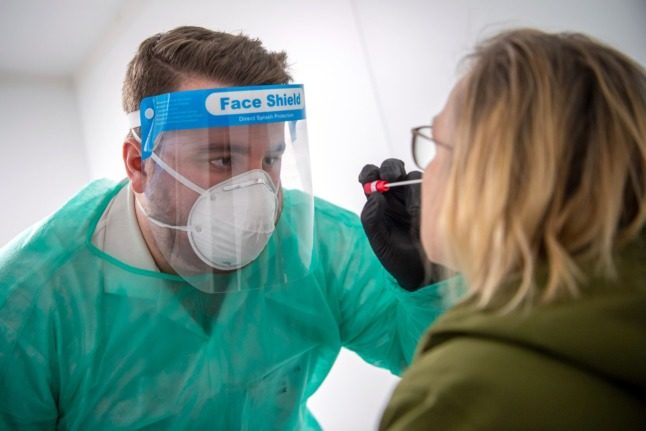Some parts of Germany (although not all quite yet) are opening up public life again as Covid-19 infections fall.
In Germany there are three ways to show that you don’t have coronavirus or are immune in order to take part in certain activities, such as going for a meal in a restaurant or visiting a bar.
These involve being ‘Getestet, Geimpft oder Genesen’ (tested, vaccinated or recovered). You can either provide proof of a recent negative Covid-19 test, show proof that you have been fully vaccinated or show proof that you have recovered from Covid within a particular time frame.
READ MORE:
- How do I prove I’m vaccinated against Covid-19 in Germany?
- Do foreign vaccination certificates count as proof in Germany?
I had Covid-19. How do I prove that?
While you will get paper evidence when you are vaccinated or test negative (you also get a digital PDF from some test centres), proving that you have had the virus and recovered can get a little more difficult.
This is the case particularly if you did not visit the doctor when you caught (or believe you caught) Covid – unfortunately you won’t be able to show proof that you had coronavirus if this applies to you.
Those who have recovered require proof of a previous infection with the SARS-CoV-2 coronavirus that can be in German, English, French, Italian or Spanish, in paper or digital form, according to the government.
The test must have been a PCR test (or similar), checked in a lab and taken at least 28 days ago. It must also not be older than six months.
If you had Covid-19 nine months ago, for example, you won’t fall into this category. In this case you’ll have to take a rapid test to visit a shop or restaurant in some parts of Germany unless you are fully vaccinated.
EXPLAINED: What are Germany’s new freedoms for vaccinated people and Covid-19 survivors?
Unlike Austria for example, an antibody test is not sufficient in Germany. Officials say that’s because antibodies can decrease over time.
Is there anything else I should know?
The government says in all cases when taking part in the newly unlocked activities – whether they are ‘Getestet, Geimpft or Genesen’, people must not have any symptoms of a possible Covid-19 infection.
These include shortness of breath, new coughs, fever, and loss of smell or taste. If you have these symptoms and suspect you have Covid-19, you should contact your doctor or your local health authority to arrange for a PCR test, and self-isolate.



 Please whitelist us to continue reading.
Please whitelist us to continue reading.
Member comments